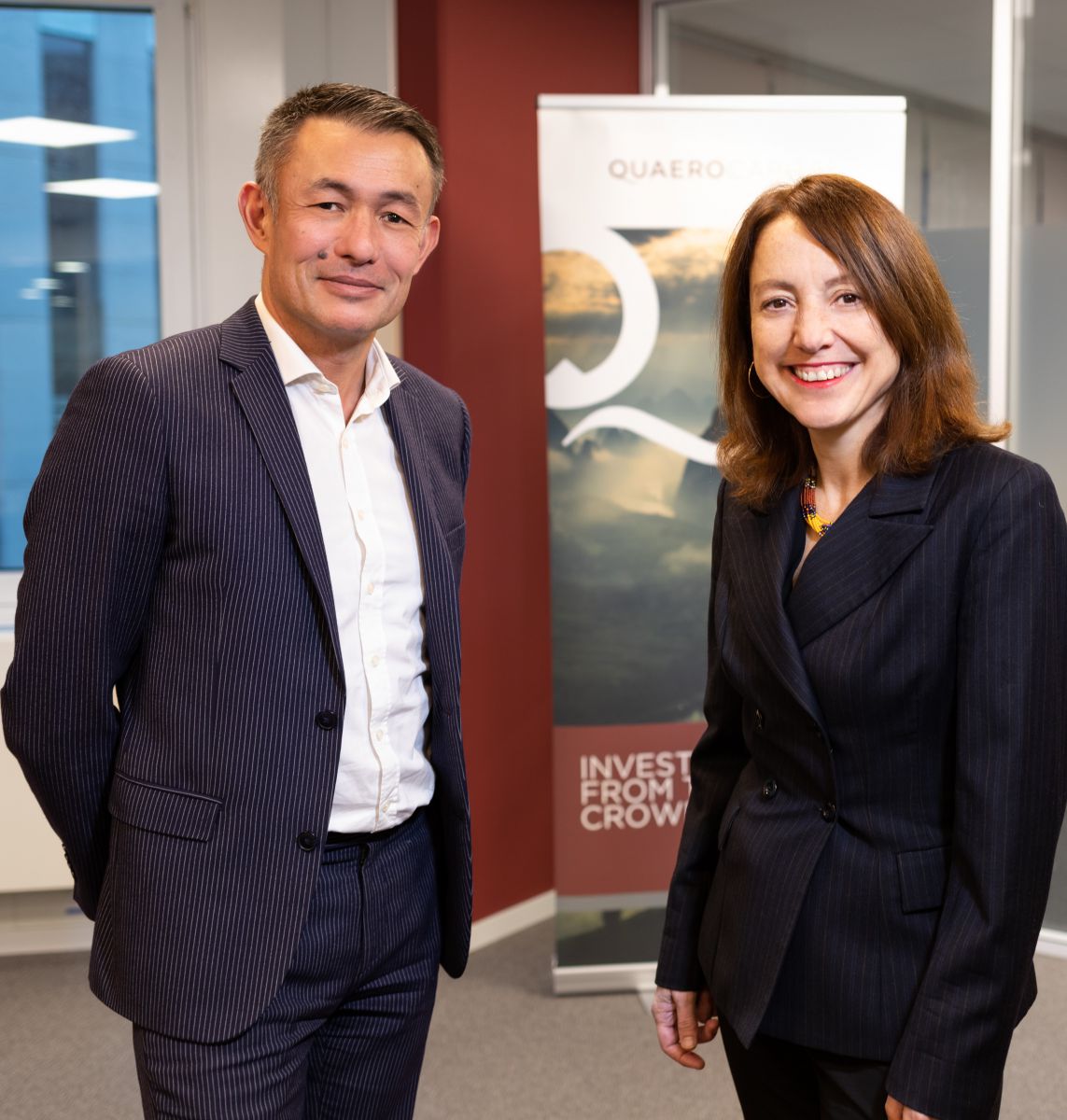Asset Management
Exclusive: Focus On Climate-Friendly Funds – Quaero Capital

As concerns about climate change ride high, Martina Turner, principal portfolio manager of the Quaero Capital Accessible Clean Energy Fund, and Olivier Ken, principal portfolio manager of the Quaero Capital Net Zero Emission Fund, talk to WealthBriefing in Paris about their two funds.
After a recent report by the Intergovernmental Panel on Climate
Change showed that emissions are not falling, Martina Turner at
Quaero
Capital in Paris said action must be stepped up to cut
emissions from every sector, including the food and agriculture
industry.
Turner is the founder of the QCF (Lux) Accessible Clean Energy
investment strategy, which aims to maximise total returns while
contributing to decarbonisation by investing in the clean energy
value chain. This includes companies involved in clean energy
technology along the value chain of energy production and
distribution. It includes solar, wind, bioenergy, hydraulic,
geothermal energy, smart grid management, energy storage
technologies including batteries, carbon capture and renewable
energy services for the raw materials – critical minerals
and silicon are examples – used in the clean energy value
chain and energy efficiency products.
The fund provides access to a range of industries via an active,
long-only listed equities strategy offering daily liquidity. It
is covered by Article 9 of the EU’s Sustainable Finance
Disclosure Regulation, she added, and gained +7.77 per cent in
January, ahead of its benchmark the MSCI World +7.4 per cent. It
has also performed well since its inception.
Among the key macro catalysts was the fact that peak inflation is probably behind us, that the FED is likely to take a less hawkish stance on rates hikes as well as China opening up.
The best performing subsector in January was energy storage, she continued. This includes lithium and rare earths' companies which contributed over 35 per cent of the overall 7.77 per cent gain. Turner believes that the cost of batteries needed for electric vehicles will come down and Europe will become more competitive as it uses renewable energy to produce them, instead of coal as in China and South Korea.
The second-best performing subsector was solar which contributed nearly 22 per cent, she said. Third and fourth best were its earlier-stage hydrogen and CCS exposures, accounting for 21 per cent, and its energy efficiency allocation contributing around 17 per cent. The wind exposures and developers/utilities each contributed only around 1 per cent. While the demand backdrop is optimistic, the near term is tricky for an industry that operates on very long lead measures, the firm added. Its biggest exposure is in the US, followed by Spain, Israel, France, Italy and the UK.
By company, the largest contributor was Albemarle, the lithium
producer. It reported a robust business environment, a good
pricing environment, and better margins than expected. Turner
highlighted how demand for lithium is robust and suppliers like
Albemarle can now negotiate on the basis of more variable-priced
contracts rather than long-term fixed-priced contracts. Albemarle
expects demand to continue to outstrip supply for lithium in the
foreseeable future, justifying its accelerated capacity expansion
plans. Turner also believes that they are entering 2023 with
confidence thanks to strong demand.
QCF (Lux) – Net Zero Emission fund
Olivier Ken joined Quaero Capital in 2022 as a portfolio manager
of QCF (Lux) – Net Zero Emission fund which was launched in
October 2022. He aims to maximise total returns while
contributing to a net zero emission world by investing in
companies which contribute to the transition to a carbon-free and
a more circular economy.
The strategy selects firms in the field of energy and ecological transition, and across different sectors such as energy, agriculture and the food industry. It provides access to a range of industries via an active, long-only listed equities strategy offering daily liquidity, and it is categorised as an SFDR Article 9 product.
According to Ken, the fund rose during the month of January, reflecting a strong start of the year and notably an outperformance of Europe vs the US. Like growth investor Comgest, its top holding is the Dutch firm ASML in the semi-conductor industry, providing chip makers with what they need through lithography, and it is guiding for 25 per cent sales growth in 2023.
With the food system accounting for 30 per cent of emissions, Ken believes that the way we consume has to be changed. The firm invests in precision agriculture, to produce more using fewer resources. A top holding is US-based agriculture machinery producer John Deere which has revealed two new technologies recently, ExacShot and an electric excavator. ExactShot uses a sensor to register when each individual seed is in the process of going into the soil and allows farmers to reduce the amount of starter fertilizer needed during planning by more than 60 per cent. The electric excavator, powered by a Kreisel battery, reduces jobsite noise, enhances machine reliability, and produces zero emissions. Ken expects precision agriculture adoption to accelerate in the future.
Ken also invests in CNH Industrial, which is the number two player in the agriculture equipment market and Dutch firm DSM, which aims to reduce methane emissions from livestock to combat climate change. The fund’s biggest exposure is in Europe – the Netherlands, France, Spain – followed by the US.